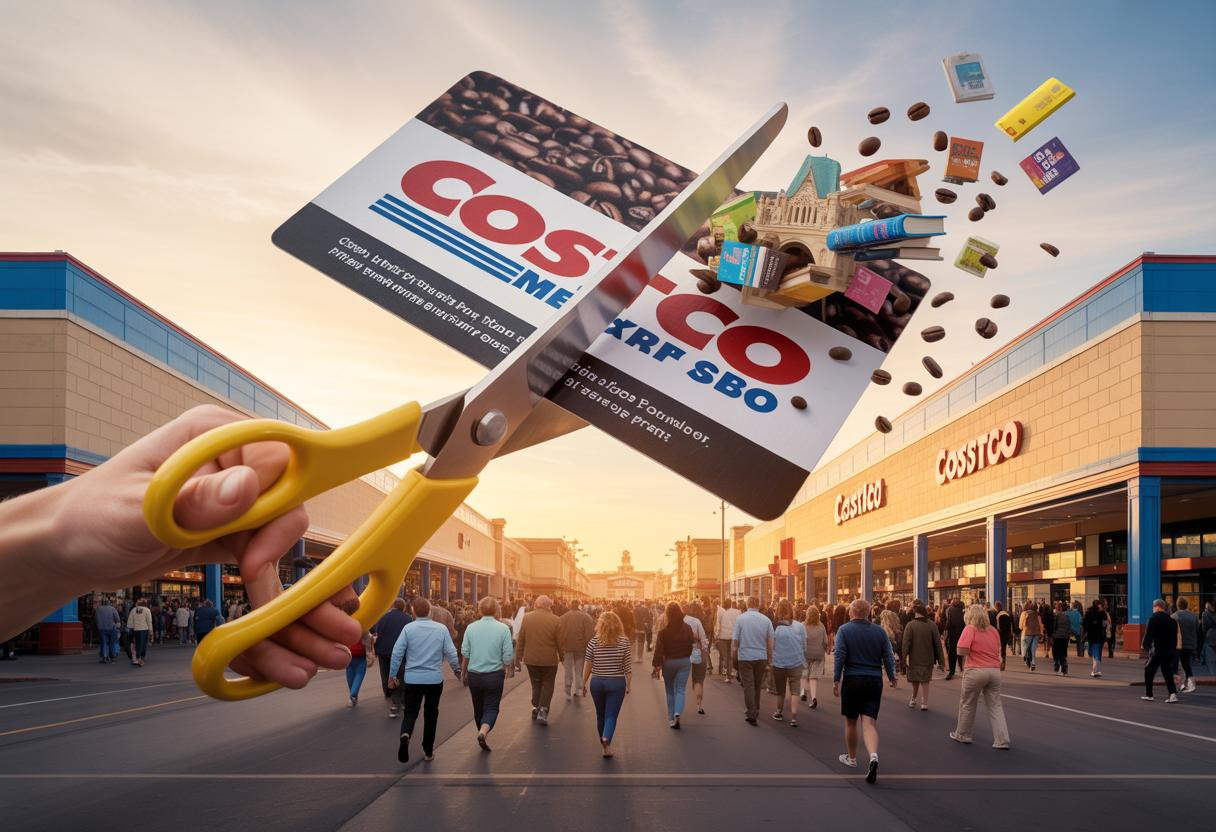Costco’s recent wave of membership perk cuts has triggered an unexpected business experiment that’s revealing profound insights about customer loyalty and retail psychology. While Reddit threads explode with complaints about removed coffee grinders and discontinued Disneyland packages, the warehouse giant’s membership numbers tell a completely different story—one that challenges everything we thought we knew about customer satisfaction.
The great membership shake-up reveals surprising truths
In what appears to be a strategic gamble, Costco eliminated several beloved perks throughout 2025. The company removed public coffee grinding machines from all locations, citing misuse and maintenance costs exceeding thousands per unit. Disneyland vacation packages vanished overnight, leaving only Walt Disney World options available through Costco Travel.
Book sales became holiday-only affairs, and guest privileges tightened dramatically with strict “no card, no entry” enforcement. Social media erupted with member frustrations, particularly on Reddit where users expressed genuine anger about losing conveniences they’d relied on for years.
Yet beneath this surface discontent lies a fascinating contradiction: membership grew 8% year-over-year in Q1 2025, with executive member renewal rates hitting an impressive 91%. This disconnect between vocal complaints and actual behavior reveals something profound about modern consumer psychology.
Why customer complaints don’t predict business outcomes
The vocal minority phenomenon drives perception
Research consistently shows that dissatisfied customers are exponentially more likely to voice complaints than satisfied ones are to share praise. Costco’s experience perfectly illustrates this principle—angry Reddit posts dominate discussion threads while millions of content members remain silent.
The company’s $4 billion annual membership revenue demonstrates that 18% of Costco members are secretly benefiting from the new membership rules, finding value in enhanced exclusivity and reduced overcrowding during peak shopping periods.
Exclusivity psychology trumps convenience losses
Behavioral economics reveals that people assign higher value to exclusive access than broad availability. By tightening membership benefits, Costco inadvertently increased the perceived worth of membership itself. Stricter enforcement created a premium club atmosphere that many members found appealing despite losing individual perks.
This mirrors how Costco’s membership model keeps Nintendo Switch 2 in stock while 5 major retailers face empty shelves, demonstrating the tangible benefits of restricted access during high-demand periods.
The unexpected financial psychology at work
Costco’s strategy reveals a counterintuitive truth: removing low-cost perks can actually increase customer lifetime value. Members who previously justified their membership through small conveniences like coffee grinding now focus on substantial savings from bulk purchasing and exclusive pricing.
The elimination of maintenance-heavy amenities reduced operational costs while membership fee increases contributed directly to profitability. This dual approach—cutting expenses while raising prices—succeeded because the core value proposition remained intact.
Members adapted their shopping behaviors, discovering new ways to maximize their membership investment beyond the discontinued perks.
Strategic lessons for membership-based businesses
Focus on core value delivery
Identify which benefits truly drive membership decisions versus those that create operational headaches. Costco discovered that bulk pricing and product quality mattered far more than coffee grinding convenience to most members.
Test controversial changes systematically
Monitor renewal rates and new membership acquisition more closely than social media sentiment. Vocal complaints rarely translate to actual customer defection when core value remains strong.
Leverage exclusivity psychology
Tighter restrictions can increase perceived membership value if implemented alongside clear benefits. The “no card, no entry” policy enhanced the premium shopping experience for committed members.
What this means for your purchasing decisions
Costco’s membership evolution offers valuable insights for consumers navigating retail relationships. Focus on quantifiable savings rather than peripheral conveniences when evaluating membership worth. The company’s ability to maintain growth while removing perks demonstrates that smart shoppers prioritize substantial benefits over minor amenities.
This retail psychology experiment proves that customer satisfaction surveys and social media complaints provide incomplete pictures of business health—sometimes the most controversial decisions yield the strongest financial results.
